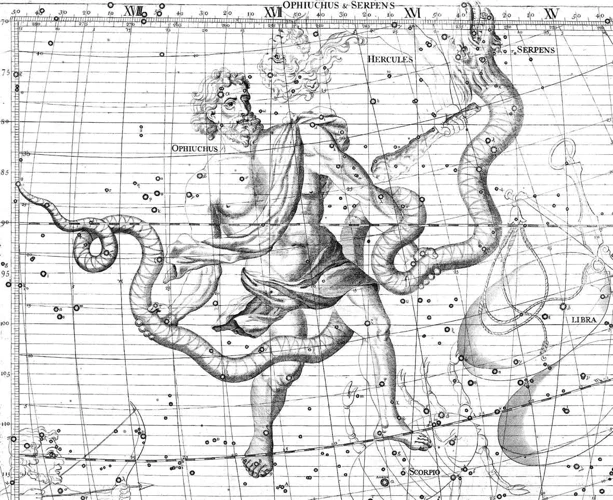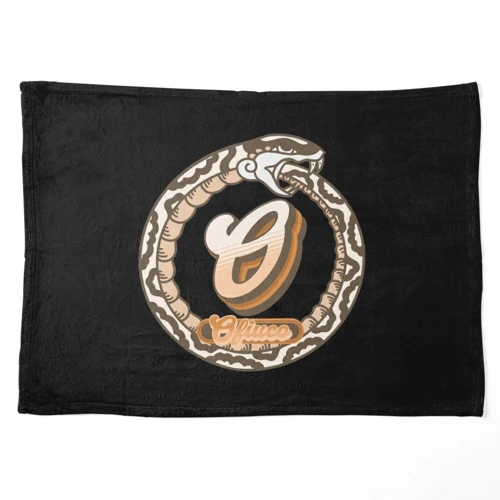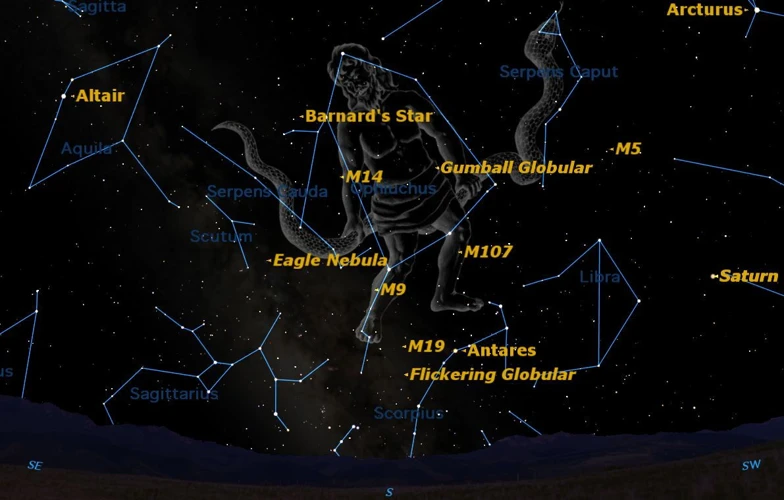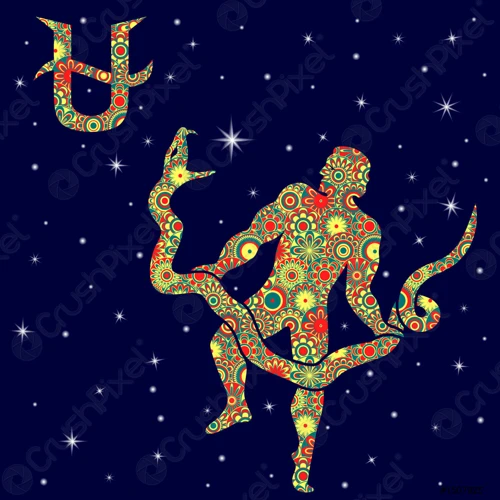Have you ever wondered how the zodiac signs came into existence? Many of us are familiar with the twelve signs of the zodiac, but what about the mysterious thirteenth sign, Ophiuchus? In this article, we will delve into the fascinating history and origin of Ophiuchus, tracing its roots back to ancient civilizations such as Babylon and Egypt. We will also explore how Ophiuchus found its place in Greek mythology and its significance in astrology. Join us on this journey as we unravel the intriguing story behind the celestial serpent bearer and the controversy surrounding this enigmatic addition to the zodiac.
Contents
- The Ancient Roots of Ophiuchus
- Ophiuchus in Greek Mythology
- Ophiuchus in Astrology
- Ophiuchus’ Impact on the Zodiac
- The Controversy Surrounding Ophiuchus
- Conclusion
-
Frequently Asked Questions
- 1. What does the name “Ophiuchus” mean?
- 2. Is Ophiuchus officially recognized as the thirteenth zodiac sign?
- 3. What are the dates associated with Ophiuchus?
- 4. What are the characteristics of individuals born under Ophiuchus?
- 5. How does Ophiuchus fit into the zodiac calendar?
- 6. What impact does Ophiuchus have on the other zodiac signs?
- 7. Are there alternative zodiac systems that recognize Ophiuchus?
- 8. Why is Ophiuchus often referred to as the “Serpent Bearer”?
- 9. Does Ophiuchus have any connection to afterlife beliefs in different mythologies?
- 10. What are some common misconceptions about Ophiuchus?
- References
-
Frequently Asked Questions
- Can you tell me more about the history of Ophiuchus?
- How did Ophiuchus originate in Babylonian culture?
- What was the connection between Ophiuchus and Egyptian culture?
- Tell me more about Ophiuchus in Greek mythology.
- What role did Asclepius play in the story of Ophiuchus?
- What is the significance of Ophiuchus as a celestial serpent bearer?
- When was Ophiuchus rediscovered in the 21st century?
- What are some key characteristics and traits associated with Ophiuchus?
- How does Ophiuchus impact the Zodiac calendar?
- Are there any alternative zodiac systems that include Ophiuchus?
- References
- Read More
The Ancient Roots of Ophiuchus

The Ancient Roots of Ophiuchus can be traced back to the early civilizations of Babylon and Egypt. In the Babylonian Era, astrology played a significant role in their society. They developed an intricate system that divided the sky into various constellations, each associated with different characters and stories. It is believed that the constellation representing Ophiuchus was known as “Serpentarius” in Babylonian astrology, and it held great importance. The Egyptians also had a connection to Ophiuchus, as they associated this constellation with the god Imhotep, who was considered the god of healing and medicine. In Egyptian mythology, Imhotep was a renowned physician and the architect of the world’s first pyramid, the Step Pyramid of Djoser. The influence of these ancient civilizations laid the foundation for the significance of Ophiuchus in later cultures and mythologies.
Internal Link: Click here to explore the secrets of Gemini and Cancer
The Babylonian Era
In the Babylonian Era, astrology held immense significance. The Babylonians developed a complex system of understanding and interpreting the celestial bodies. They divided the sky into twelve sections, each associated with a particular constellation, which in turn represented a unique mythological character or story. Within this system, Ophiuchus, known as “Serpentarius,” had its place as one of the constellations. The Babylonians believed that the position of the stars and planets in the sky influenced the lives of individuals and the course of events on Earth. They would meticulously observe the movements of celestial bodies and interpret them to make predictions about various aspects of life, including matters of the state, weather conditions, and personal fortunes. The inclusion of Ophiuchus in their astrology further added richness to their understanding of the cosmos and its influence on human life. The Babylonian Era marked the early beginnings of the fascination with constellations and astrology, which has persevered through the centuries.
Internal Link: Click here to explore the concept of an afterlife in Japanese mythology
The Egyptian Connection
The Egyptian Connection to Ophiuchus is deeply rooted in their belief system and mythology. In ancient Egypt, Ophiuchus was associated with the god Imhotep, who held great significance as the god of healing and medicine. Imhotep was revered as a wise physician and a skilled architect. The Egyptians believed that Imhotep possessed immense knowledge and healing powers, making him a revered figure in their society. Ophiuchus, representing the serpent bearer, was seen as a symbol of healing and rejuvenation. The Egyptians believed that those born under the influence of Ophiuchus were destined to possess healing abilities and were seen as natural healers. This connection between Ophiuchus and healing underscores the deep-rooted belief system of the ancient Egyptians and their reverence for the power of medicine and restoration.
Internal Link: Discover the mythical creatures of Hindu mythology
Ophiuchus in Greek Mythology

Ophiuchus holds a prominent place in Greek mythology, intertwined with the tale of Asclepius. Asclepius was a skilled healer and the son of Apollo, the god of medicine and healing. According to the legend, Asclepius was taught the art of medicine by the wise centaur, Chiron. Asclepius became so adept at healing that he could even revive the dead. His abilities attracted the attention of the gods, and Zeus, fearful of mortal men becoming immortal, struck him down with a thunderbolt. As a tribute to his extraordinary healing powers, Zeus placed him among the stars as the constellation Ophiuchus, the serpent bearer.
Ophiuchus in Greek mythology is often depicted as a figure holding a serpent, known as Serpens, which symbolizes both wisdom and healing. The constellation is positioned between Scorpio and Sagittarius, symbolizing the struggle between life and death. Ophiuchus’ association with snakes can also be linked to the Rod of Asclepius, which is represented by a serpent coiled around a staff. This symbol is widely recognized as a symbol of medicine and is still used today.
In Greek mythology, Ophiuchus portrays the eternal quest for knowledge, healing, and the balance between life and death. Its inclusion in the zodiac adds complexity and depth to the astrological framework, offering a unique perspective on the characteristics and traits associated with those born under this sign.
Internal Link: Learn more about the fascinating myths of the afterlife in Japanese mythology
The Story of Asclepius
The story of Asclepius is a captivating tale that ties Ophiuchus to Greek mythology. Asclepius, also known as Aesculapius, was a demigod and the son of Apollo, the god of healing, and the mortal woman Coronis. According to legend, Apollo saved Asclepius from his mother’s womb after she was killed for her infidelity. Asclepius grew up to become a renowned healer and physician, surpassing all others in his mastery of medicine. His skills were so exceptional that he could even bring the dead back to life. However, this act of defying the natural order caught the attention of the gods, particularly Zeus, the king of the gods. Zeus feared that such power could disrupt the balance between life and death. As a result, Zeus struck down Asclepius with a bolt of lightning, ending his life. To honor Asclepius, Zeus placed him among the stars as the constellation Ophiuchus, forever immortalizing his extraordinary healing abilities in the night sky. This mythological connection between Asclepius and Ophiuchus further solidifies the constellation’s association with medicine and healing.
A Celestial Serpent Bearer
A Celestial Serpent Bearer is how Ophiuchus is commonly depicted in Greek mythology. According to the story, Ophiuchus represents the legendary healer, Asclepius. Asclepius was a mortal physician who possessed remarkable healing abilities. He became so skilled in the art of healing that he even had the power to resurrect the dead. This power alarmed the gods, particularly Hades, the god of the underworld, who felt threatened by Asclepius’ ability to defy death. As a result, Zeus, the king of gods, intervened and struck down Asclepius with a lightning bolt. However, recognizing his extraordinary contributions to medicine, Zeus placed Asclepius among the stars as the constellation Ophiuchus. In this celestial form, Asclepius is typically depicted as a man holding a serpent, symbolizing healing and rebirth. The symbol of the serpent intertwining around a staff, known as the Rod of Asclepius, is even used today as a universal symbol of medicine and healing. Ophiuchus, as a celestial serpent bearer, represents the eternal connection between medicine, healing, and the heavens.
Additionally, here is the information in a list format:
– Ophiuchus is depicted as a celestial serpent bearer in Greek mythology.
– The constellation represents Asclepius, a legendary healer and physician.
– Asclepius possessed incredible healing abilities and the power to resurrect the dead.
– Zeus struck down Asclepius with a lightning bolt due to his ability to defy death.
– As a tribute to his contributions, Asclepius was placed among the stars as Ophiuchus.
– Ophiuchus is often depicted as a man holding a serpent, symbolizing healing and rebirth.
– The Rod of Asclepius, a staff with a serpent intertwined around it, is a symbol of medicine and healing.
– Ophiuchus represents the eternal connection between medicine, healing, and the heavens.
Ophiuchus in Astrology

Ophiuchus in Astrology has a fascinating history that spans centuries. While Ophiuchus was known in ancient civilizations, its rediscovery in the 21st century brought it back into the spotlight. Astrologers began to delve deeper into the characteristics and traits associated with Ophiuchus as a zodiac sign. Ophiuchans are described as seekers of wisdom and knowledge, with a natural inclination towards healing and transformation. They possess an intuitive and empathetic nature, making them excellent listeners and advisors. Ophiuchus is often associated with the symbol of a serpent bearer, depicting their ability to handle and manage life’s challenges with wisdom and grace. However, it’s important to note that Ophiuchus is not recognized in traditional Western astrology, which only considers the twelve zodiac signs we are familiar with. The inclusion of Ophiuchus in astrology has sparked debates and discussions about its relevance and impact on the zodiac system.
Internal Link: There is no relevant anchor in the text for an internal link.
The Rediscovery in the 21st Century
The rediscovery of Ophiuchus in the 21st century brought renewed interest and debate among astrologers and enthusiasts. While Ophiuchus has ancient roots, it wasn’t until 1970 that an American astronomer, Stephen Schmidt, reintroduced the idea of Ophiuchus as a thirteenth zodiac sign. Schmidt based his argument on the fact that the Earth’s axis has shifted over time, causing an alignment with the constellation of Ophiuchus. This realignment meant that the dates traditionally assigned to the twelve zodiac signs no longer aligned with the current positions of the constellations. However, despite this rediscovery, Ophiuchus has not been officially recognized by the mainstream astrological community and is still not included in popular horoscopes and zodiac charts. Nonetheless, the rediscovery of Ophiuchus has sparked a broader discourse on the boundaries and interpretations of astrology, capturing the attention and curiosity of astrology enthusiasts around the world.
Ophiuchus Characteristics and Traits
When it comes to Ophiuchus Characteristics and Traits, this enigmatic zodiac sign is associated with a unique set of qualities. People born under the sign of Ophiuchus are believed to possess a wide range of characteristics that set them apart. They are often seen as ambitious and passionate individuals who are driven by a desire to make a positive impact on the world around them. Ophiuchus individuals are known for their natural healing abilities and a strong inclination towards medicine and alternative healing practices. They are also highly intuitive and have a deep understanding of the human psyche. These individuals are often seen as wise and mysterious, with an innate ability to uncover hidden truths. In terms of relationships, Ophiuchus natives are considered loyal and devoted partners who value trust and authenticity. They have a profound sense of justice and are always willing to fight for what they believe in. It is important to note that while Ophiuchus shares some traits with neighboring signs, it possesses its own distinct qualities that make it a fascinating addition to the zodiac pantheon.
Ophiuchus’ Impact on the Zodiac

Ophiuchus’ Impact on the Zodiac has been a subject of much discussion and controversy. Traditionally, the zodiac consisted of twelve signs, each representing specific personality traits and characteristics. However, the inclusion of Ophiuchus as the thirteenth sign has created a shift in the zodiac calendar. Ophiuchus is positioned between the zodiac signs of Scorpio and Sagittarius, disrupting the established order.
One major impact of Ophiuchus on the zodiac is the adjustment to the dates associated with each sign. Those born between November 30th and December 17th now fall under the Ophiuchus sign. This change has led many individuals to question their sun sign and seek a deeper understanding of their astrological identity.
Ophiuchus also brings new characteristics and traits to the zodiac table. People born under this sign are believed to possess qualities such as wisdom, healing abilities, and a deep connection to spirituality. They are seen as natural leaders and possess a strong desire to make positive changes in the world.
This addition to the zodiac has given rise to various debates and discussions among astrologers and enthusiasts. Some argue that Ophiuchus should be recognized and integrated into the zodiac system, while others believe it disrupts the traditional framework and should be disregarded.
Ultimately, the impact of Ophiuchus on the zodiac has opened up a whole new realm of exploration and interpretation. Whether you embrace Ophiuchus as a valid sign or not, it is undeniable that its existence has sparked curiosity and reevaluation of the zodiac’s influence on our lives.
html list:
- The inclusion of Ophiuchus disrupts the established order of the twelve signs.
- Adjustments in the zodiac calendar have been made to accommodate Ophiuchus.
- The addition of Ophiuchus has led to a shift in the dates associated with each sign.
- Ophiuchus brings new characteristics and traits to the zodiac table.
- Debates and discussions have arisen regarding the recognition of Ophiuchus.
Ophiuchus and the Zodiac Calendar
Ophiuchus and the Zodiac Calendar have a complex relationship. Traditionally, the Zodiac Calendar consisted of twelve signs, each representing a portion of the year. However, with the inclusion of Ophiuchus, the calendar would need to be adjusted to accommodate the thirteenth sign. This poses a challenge as it raises questions about the astrological significance and interpretation of Ophiuchus. Some believe that Ophiuchus should be integrated into the Zodiac Calendar, while others argue that the traditional twelve signs should remain unchanged. Additionally, the characteristics and traits associated with Ophiuchus have caused further debate within the astrological community. Despite the controversy, many people find interest in exploring the attributes and implications of Ophiuchus’s potential impact on the Zodiac Calendar.
The Shift in Zodiac Signs
The Shift in Zodiac Signs caused quite a stir when it was brought into the spotlight. Traditional astrology was based on the twelve zodiac signs that aligned with specific dates of the year. However, the introduction of Ophiuchus as the thirteenth sign raised questions and sparked debates about its impact on the existing zodiac calendar. According to the new alignment, the dates of all the zodiac signs shifted, resulting in many individuals discovering that they now fell under different sign placements. This shift created confusion and prompted discussions about how it would affect astrology readings and horoscopes. While some embraced the change, others remained attached to the traditional zodiac system. It is important to note that not all astrologers recognize or incorporate Ophiuchus into their readings, further contributing to the controversy surrounding the shift in zodiac signs.
The Controversy Surrounding Ophiuchus

The Controversy Surrounding Ophiuchus has been a topic of discussion among astrologers and enthusiasts. One aspect of this controversy is related to alternative zodiac systems. Some astrologers argue that Ophiuchus should be incorporated as the thirteenth sign in the zodiac, disrupting the traditional twelve-sign system. This is based on the astronomical fact that the sun passes through Ophiuchus for a period of time during the year. However, others argue against this inclusion, stating that it would require reshuffling the entire zodiac calendar and significantly changing the characteristics and traits associated with each sign. Another aspect of the controversy revolves around debunking misconceptions. One common misconception is that if you were born between November 29th and December 17th, you are automatically an Ophiuchus. However, it is important to note that this misconception stems from a misinterpretation of the dates associated with Ophiuchus. The controversy surrounding Ophiuchus continues to spark debates and discussions within the astrological community.
Html List:
- Alternative Zodiac Systems
- Debunking Misconceptions
Alternative Zodiac Systems
Alternative Zodiac Systems have emerged throughout history, challenging the traditional twelve zodiac signs. One such system is the Chinese zodiac, which is based on a twelve-year cycle, each year associated with an animal sign. These animal signs include the Rat, Ox, Tiger, Rabbit, Dragon, Snake, Horse, Sheep, Monkey, Rooster, Dog, and Pig. Another alternative zodiac system is the Vedic astrology system, which originated in ancient India. In Vedic astrology, there are twelve signs, known as “Rashis,” each representing different personality traits and characteristics. These signs include Aries, Taurus, Gemini, Cancer, Leo, Virgo, Libra, Scorpio, Sagittarius, Capricorn, Aquarius, and Pisces, similar to the Western zodiac. Additionally, there are regional zodiac systems such as the Celtic zodiac, which is based on the lunar calendar and associated with trees, and the Native American zodiac, which is based on animal totems. These alternative zodiac systems provide different perspectives and interpretations, illustrating the diverse cultural influences on astrology and the human fascination with understanding ourselves and our place in the universe.
Debunking Misconceptions
Debunking Misconceptions: As with any topic shrouded in mystery and speculation, there are bound to be misconceptions surrounding Ophiuchus. One common misconception is that Ophiuchus is a new addition to the zodiac. However, in reality, Ophiuchus has been known and recognized for centuries, even though it may not have always been included in the traditional zodiac system. Another misconception is that the introduction of Ophiuchus means that everyone’s zodiac sign has changed. This is not the case, as the addition of Ophiuchus does not alter the dates or characteristics associated with the other twelve zodiac signs. It simply provides an alternative perspective and an additional option for those who resonate with the traits of Ophiuchus. It is essential to approach these misconceptions with an open mind and to understand that astrology is multifaceted and that the interpretation of zodiac signs may differ among individuals.
Conclusion

In conclusion, the history and origin of Ophiuchus is a fascinating journey that takes us back to ancient civilizations like Babylon and Egypt. From its roots in Babylonian astrology to its association with the healing god Imhotep in Egyptian mythology, Ophiuchus has captured the curiosity and imagination of people throughout history. In Greek mythology, the story of Asclepius further solidified the significance of this constellation. In modern astrology, the rediscovery of Ophiuchus in the 21st century has sparked controversy and debate, challenging the traditional twelve zodiac signs. While Ophiuchus may not be officially recognized as a zodiac sign in mainstream astrology, its existence continues to intrigue and captivate those who delve into the realm of celestial symbolism. Whether Ophiuchus finds its place in the zodiac or remains a celestial enigma, its ancient roots and mythical connections make it a subject of fascination and intrigue for generations to come.
Frequently Asked Questions

1. What does the name “Ophiuchus” mean?
The name “Ophiuchus” is derived from the Greek word “ophis,” which translates to “serpent,” and “ouchos,” meaning “holding” or “bearing.”
2. Is Ophiuchus officially recognized as the thirteenth zodiac sign?
No, Ophiuchus is not officially recognized as a zodiac sign according to Western astrology. The traditional zodiac system consists of only twelve signs.
3. What are the dates associated with Ophiuchus?
Ophiuchus is typically associated with the dates between November 29 and December 17. However, it’s important to note that these dates may vary depending on different interpretations and astrological systems.
4. What are the characteristics of individuals born under Ophiuchus?
People born under Ophiuchus are often described as mysterious, intuitive, and driven. They are believed to possess great wisdom, healing abilities, and a deep connection with nature.
5. How does Ophiuchus fit into the zodiac calendar?
Ophiuchus is considered an addition to the traditional zodiac calendar as the thirteenth sign. It is said to come after Scorpio and before Sagittarius in the astrological sequence.
6. What impact does Ophiuchus have on the other zodiac signs?
Ophiuchus does not typically impact the other zodiac signs directly. The addition of Ophiuchus mainly affects the zodiac calendar and the dates associated with each sign.
7. Are there alternative zodiac systems that recognize Ophiuchus?
Yes, there are alternative zodiac systems, such as sidereal or Vedic astrology, that do include Ophiuchus as a zodiac sign and consider its influence in horoscopic interpretations.
8. Why is Ophiuchus often referred to as the “Serpent Bearer”?
Ophiuchus is associated with the image of a man holding a serpent. In mythology, this is typically depicted as Asclepius, a renowned Greek healer who is often symbolized by a staff with a serpent wrapped around it, known as the Rod of Asclepius.
9. Does Ophiuchus have any connection to afterlife beliefs in different mythologies?
While Ophiuchus itself does not have a direct connection to afterlife beliefs, it is interesting to explore how different mythologies, such as Japanese or Hindu mythology, may have their own mythical creatures and beliefs related to the afterlife.
10. What are some common misconceptions about Ophiuchus?
One common misconception is that everyone’s zodiac sign has changed due to the addition of Ophiuchus. However, this is not true. Your zodiac sign remains the same in the traditional Western astrology system, regardless of Ophiuchus’ existence.
References
Frequently Asked Questions

Can you tell me more about the history of Ophiuchus?
Ophiuchus has ancient roots, dating back to the Babylonian and Egyptian civilizations, and it is also mentioned in Greek mythology. It has recently gained attention in astrology as well.
How did Ophiuchus originate in Babylonian culture?
The Babylonians associated Ophiuchus with their chief physician, the demi-god Gula, and his snake symbol represented healing and protection.
What was the connection between Ophiuchus and Egyptian culture?
Ophiuchus was linked to the Egyptian god Imhotep, who was revered as a healer and considered the patron of medicine.
Tell me more about Ophiuchus in Greek mythology.
In Greek mythology, Ophiuchus is associated with the story of Asclepius, a skilled healer who was known for his ability to revive the dead.
What role did Asclepius play in the story of Ophiuchus?
Asclepius, the son of Apollo, became the most famous physician in ancient Greece and was later deified as the constellation Ophiuchus.
What is the significance of Ophiuchus as a celestial serpent bearer?
Ophiuchus is depicted as a man holding a snake, representing the serpent symbol of healing and wisdom.
When was Ophiuchus rediscovered in the 21st century?
Ophiuchus gained renewed interest and attention in the 21st century when it was widely discussed as a 13th zodiac sign.
What are some key characteristics and traits associated with Ophiuchus?
Ophiuchus individuals are believed to possess qualities such as wisdom, intuition, healing abilities, and a desire for spiritual growth.
How does Ophiuchus impact the Zodiac calendar?
Ophiuchus has the potential to add a new sign to the Zodiac calendar and alter the dates and characteristics associated with the existing signs.
Are there any alternative zodiac systems that include Ophiuchus?
Yes, some alternative zodiac systems have included Ophiuchus as a sign, providing a different perspective on astrological interpretation.







